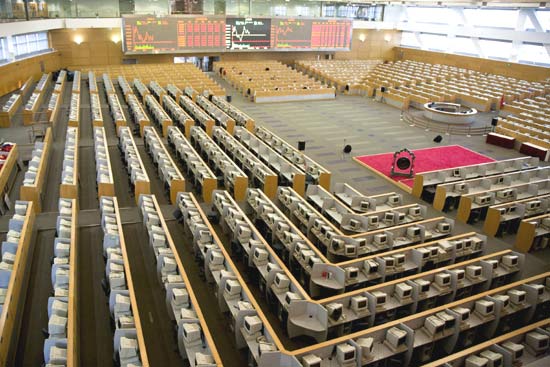High-yield bonds give SMEs new source of funding
By He Wei in Shanghai (China Daily) Updated: 2012-06-09 10:34
 |
|
The trading floor of the Shanghai Stock Exchange. The bourse started a review process on Thursday for private placement bond applications submitted by seven small and medium-sized enterprises. [Photo / China Daily] |
China opened a new channel of financing on Friday by launching long-awaited high-yield bonds that aim to deal with the capital starvation of small and medium-sized enterprises.
The first issue was made by the Jiangsu-based Suzhou Huadong Coating Glass Co, which offered 50 million yuan ($7.8 million) worth of two-year notes at a yield of 9.5 percent, according to the Shanghai Stock Exchange.
The bourse started a review process on Thursday for private placement bond applications submitted by seven SMEs.
The applicants come from industries including the media, high-tech and manufacturing industries. Their issuance limits vary from 20 million to 100 million yuan.
Shanghai and Shenzhen stock exchanges issued trial regulations concerning SMEs' private placement bonds with the approval of the China Securities Regulatory Commission in May.
The green light has been given to 16 companies to hold private placements since the trial program was announced last month.
According to the program, applicants should not include listed companies or property developers and financial institutions. The rates of the bonds should be no more than three times benchmark bank loan rates.
The endeavor marks a "brand new trial to solve difficulties faced by SMEs in getting funds, but investors should stay cautious and be prepared for potential losses", said the Shanghai Stock Exchange, which does not guarantee the credibility and profitability of the issuers.
High-yield bonds, also known as junk bonds, stand for high-risk but high-yield bonds with low credit ratings.
Last year, new issues of enterprise bonds by State-owned enterprises and government agencies totaled 247.3 billion yuan, according to the central bank.
In comparison, SMEs issued bonds worth only 5.2 billion yuan.
The bonds will provide SMEs with an important new source of financing, as the market is longing for investment products with high return rates, said Shi Lei, a senior bond analyst from Ping An Securities Co Ltd.
A high-profile program in Wenzhou, Zhejiang province, was launched in March that encouraged banks to extend loans to private businesses.
Zhou Dewen, chairman of Wenzhou SME Development Association, said the debt market is critical for small firms to get direct funding.
Zhou said the establishment of a sound bond market will help ease a credit crunch in the short term. He told China Daily that the organization had selected 20 local SMEs to recommend to underwriters.
But Dai Jie, head of the cooperation and exchange department of Shanghai SEM Development Service Center, regards the current move as a largely symbolic government-led endeavor, rather than being genuinely market-driven.
Dai's association has organized a handful of joint bond issuance for more than 10 SMEs in the past few years. But they all met with a cold response because the market simply had no confidence in the credibility of these smaller players.
Investors may worry about the profitability of small companies, as the downward trend of the economy deepens. "So we would expect more fiscal means to bolster the plan," Dai said.
hewei@chinadaily.com.cn
- Album launched to promote World Hepatitis Day
- Move to boost online second-hand watch sales
- Wanda sinks $30m in 1st US-made film
- Steel mills expect gains from output suspension
- Parallel import of cars gaining momentum
- Marine express services to boost cross-Straits trade ties
- Aligning Belt and Road with EAEU to synergize Eurasia: Russian expert
- Hanergy taken off connect list

















